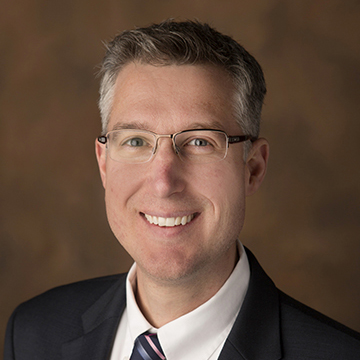You should get screened for colorectal cancer earlier than initially recommended. Here’s what you need to know.
The American Cancer Society now recommends people at average risk be screened for colorectal cancer via colonoscopy, or another method, starting at age 45, rather than at age 50. Some people with a family history of colorectal cancer, other cancers, or those experiencing a change in bowel function may need an earlier screening.
“Colorectal cancer is one of most common cancer diagnosis in the U.S., and is a leading cause of cancer deaths,” said Timothy Geiger, M.D., a colon and rectal surgery specialist at Vanderbilt University Medical Center. “And if you look at the statistics, there is an increase in the number of people under 50 who are getting colon and rectal cancer compared to what we have seen in the past.”
Why did the age recommendation for screening change?
The American Cancer Society analyzed the rates over time and determined the importance of screening for colorectal cancer at a younger age. Computer modeling of trends and patient populations helped collect this evidence.
Geiger is quick to point out that the data can be a little confusing. Patients older than 50 years old have more commonly been diagnosed with colon or rectal cancer. “However, the frequency of colorectal cancer in those under 50 is increasing at a higher rate than previously thought,” he said. “So we need to make sure we start thinking about colonoscopies at an earlier age than we have in the past. We know that colonoscopies save lives.”
Landing on an age recommendation required a delicate balance.
“There are risks to the test, like bleeding or perforation,” Geiger said. “And while those are low, when you undergo a test, there are real risks associated with it.” Moving the screening recommendation to an earlier age increases the number of colonoscopies a person will get in their lifetime. The recommended amount of time to receive a screening is every 10 years. That’s why the recommendation is currently age 45, rather than earlier, Geiger explained. “You have to pick that tipping point, where the benefit of colon cancer screening now outweighs the risk of screening,” he said.
Some people may need to be screened earlier than age 45.
The guideline for colon cancer screening at age 45 is for the general population. However, if you have a family history of colon, rectal cancer or other related cancers, Geiger recommends a discussion with your physician for earlier screening. Likewise, if you’re having any abnormal symptoms related to your bowel movements, you should make your doctor aware of those, as this can be a sign of cancer.
What are some abnormal symptoms?
“Sometimes patients will see blood in their stool or have blood with a bowel movement,” Geiger said. “That’s never normal.” If this occurs, you should talk to your doctor about it. Geiger also recommends noting and talking to your physician about any significant changes in bowel function. This may include diarrhea that doesn’t go away after a couple of days or sudden constipation. Also, talk to your doctor about abdominal pain that doesn’t go away after a few days or any unintended weight loss. These symptoms don’t mean you have cancer, but they are a reason to touch base with your physician for a possible examination.
You can decrease your risk of colorectal cancer.
Obesity and a sedentary lifestyle are factors that increase your risk for colon and rectal cancer. A diet high in red or processed meat and low in fiber can also increase your risk, Geiger said. Making lifestyle changes regarding diet and exercise can reduce your risk and improve overall health. The American Cancer Society recommends staying away from all forms of tobacco, as well.
Don’t Delay
Some things in life can be put off. A cancer screening shouldn’t be one of them. Cancer checks save lives.


